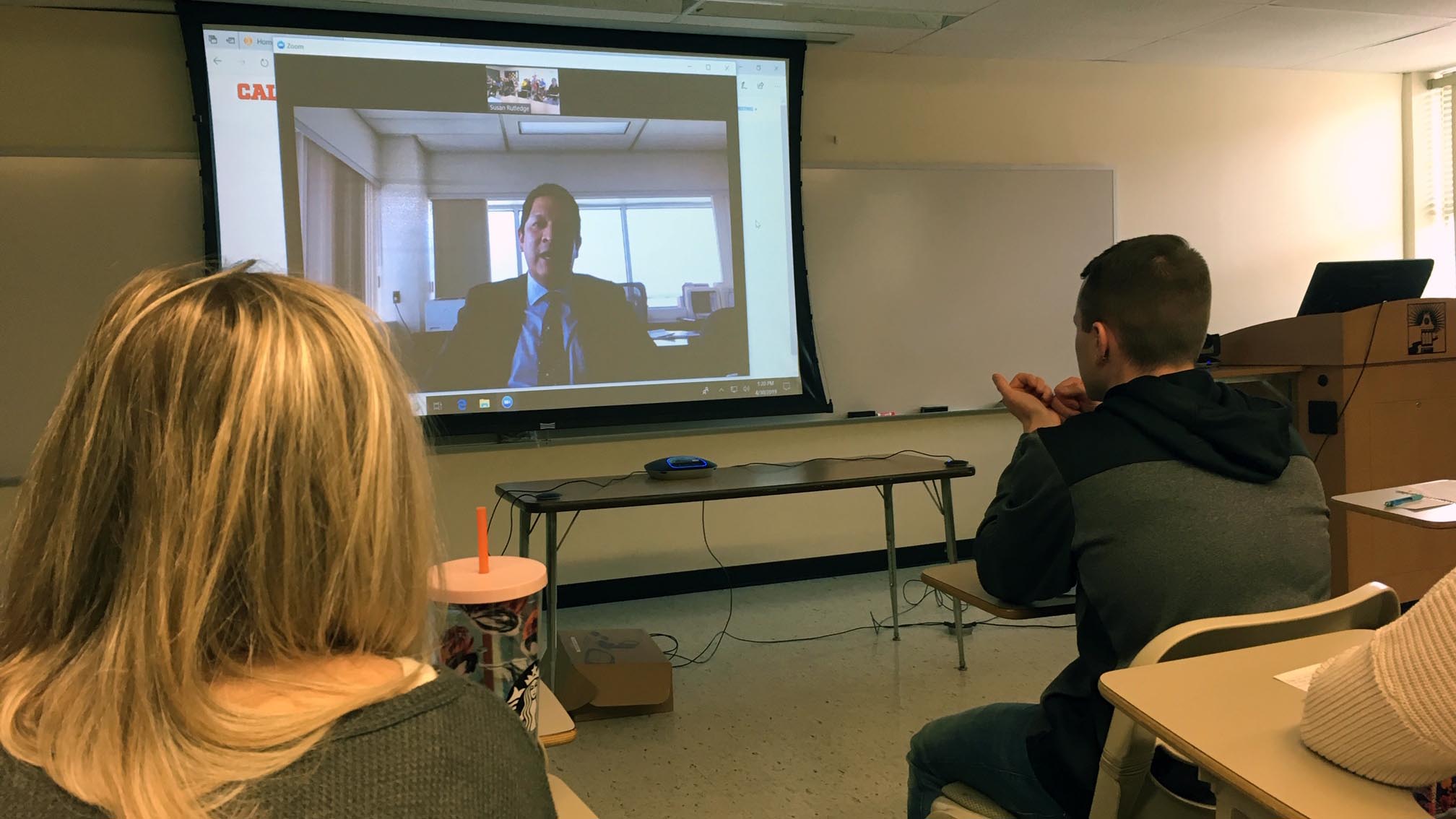Deputy secretary Noe Ortega, from the Pennsylvania Department of Education, joined the discussion among education majors.

Cal U students participate in a Skype conversation with Noe Ortega, the deputy secretary for the Office of Postsecondary and Higher Education.
By 2025 nearly one of every four U.S. public school students will be an English language learner (ELL), but Pennsylvania is just one of 17 states that require any coursework for higher education students who will work with these students.
Aspiring teachers and speech pathologists in Dr. Susan Morris-Rutledge’s Supporting English Language Learners course discussed the challenges of this fast-growing field on April 30 via Skype with Noe Ortega. He is the deputy secretary for the Office of Postsecondary and Higher Education at the Pennsylvania Department of Education.
ELL is a term used in some English-speaking countries to describe people who are learning English in addition to native languages or any other languages they speak.
Ortega, who assumed his post in October 2017, taught English as a foreign language in Japan.
“Expertise in the field of education means that somebody is entrusting the development and nurturing of an individual in your hands,” he said. “That’s a tremendous amount of pressure, and there’s really a lot of foundational building that happens for students at that early age.”
He believes his job is as a facilitator between higher education and the state in the area of school leadership and teacher quality.
“The breadth of the commonwealth’s educational needs is enormous, and there’s a culture of litigation that over time creates legal precedence that informs policy,” he said. “Less policy and more practice are needed because the field is pretty much definitive in how it sets parameters.”
Students discussed benefits and drawbacks of having students leave their classrooms for specialized, or “pull-out,” English language instruction.
“I believe in inclusion in the classroom," said Cole Egad, a senior secondary education major. "Mainstreaming in general placement would be more beneficial in terms of personal development, finding their own identity and being part of something bigger than just learning the basic English learning development that a pull-out program would primarily focus on.”
Ortega said the challenge is to build effective ELL programs that incorporate students’ experiences, cultures with their ability to master a language. He reiterated the important role the higher education students can play in future ELL policies and programs.
“How you think and frame your recommendations are so helpful for us when we go back and interact with our stakeholders, so we can say that we have feedback from students as well as educators and administrators,” Ortega said. “Faculty are the expertise who run these programs, and that should never go away.”
